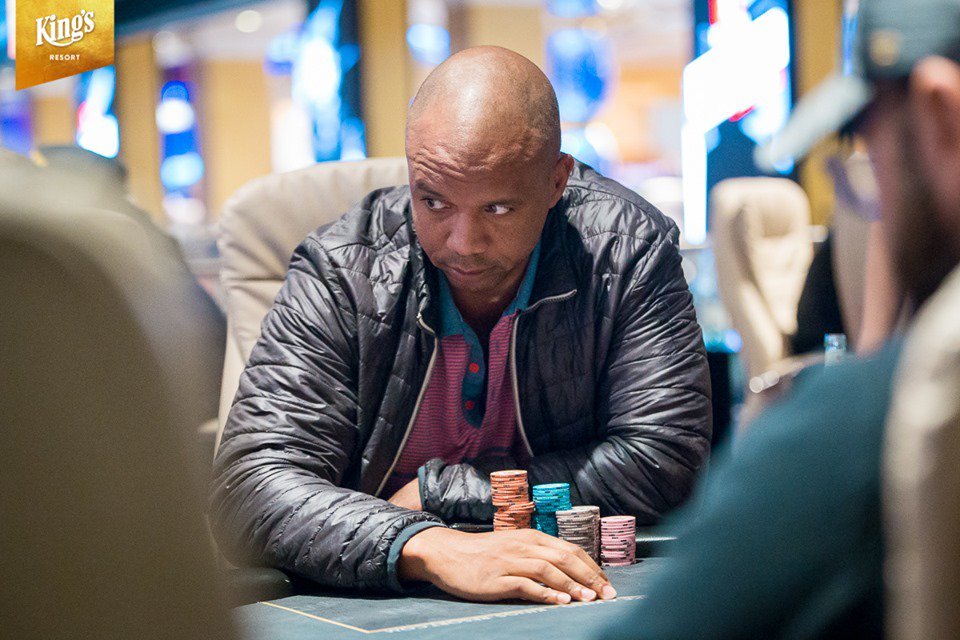The long-running legal war between legendary poker player Phil Ivey and Atlantic City’s Borgata Hotel Casino has reportedly reached an agreement to settle its six-year case.

Revealed earlier this week by NJ Online Gambling, the high stakes baccarat edge sorting case is finally in its end stage according to a court filing on Thursday with the U.S. Court of Appeals for the Third Circuit. While the terms and amount for the settlement was not disclosed, the awaited decision is unsurprising as per gaming attorney, Mac Verstandig.
In a statement regarding the case he said, “It’s unsurprising to see litigation settled, especially at the appellate stage where both parties have had the opportunity to air respective grievances, and the cost of going forward may outweigh what either party stands to gain, cooler heads normally prevail sooner but it’s not at all surprising to see it come to pass here.”
With the drawn-out legal war eventually in the process of wrapping up, Ivey’s longstanding problem of playing in the spotlight or moreover, within U.S. territory may also be coming to an end. Just last year, news of Borgata directly seizing the ten-time bracelet winner’s payout after an 8th place finish in the World Series of Poker’s $50K Poker Player’s Championship (PPC) tournament came to light. The resolution was drawn from a prior ruling in favor of the casino ordering Ivey to pay the sum of $10.3 million as to which the American pro delayed. Considering all winnings earned by Ivey is set to be seized before even getting his hands on it, the poker superstar’s overall career was heavily affected, limiting his participation in major tournaments held in the country.
Ivey’s record prior to the highly publicized case was at the very top level in the poker industry having won ten WSOP bracelets along with 67 cashes worth $6,820,287 under the leading brand alone. One of the most popular icons in the poker scene, many fans are continuously rooting for Ivey to make a comeback doing what he does best, playing the game of poker. As the long and complicated issue is being put to rest, the question now is – Will Ivey be returning to the spotlight anytime soon?
Brief history on the case
Phil Ivey’s legal problems initially began after playing multiple sessions of high stakes baccarat with partner Cheung Yin “Kelly” Sun at Crockfords Casino in London and Borgata Casino in Atlantic City, profiting upwards of $10 million at each casino back in 2012. Suspecting foul play, Crockfords refused to pay the duo their profits, at which point the legal battle ensued.
Ivey and Sun were admittedly using a technique called edge sorting which entails spotting and exploiting minor flaws shown on the back pattern of the cards without touching them. This professional technique gave the gambling players a slightly higher advantage against the house allowing them to have more control towards the outcome.
Two years later, Borgata was likewise alerted of the technique causing them to file their initial lawsuit in the United States District Court for the District of New Jersey with accusations of Breach of Contract, Breach of Implied Contract, Breach of Implied Covenant of Good Faith and Fair Dealing, Fraudulent Inducement, and Fraud against the two.
Unfortunately for Ivey, the court ruling in 2016 sided with Borgata along with the $10.3 million judgment and the eventual seizing of assets when the pro delayed payments.
Since then, the case has remained on appeal with Ivey constituting that the technique used did not equate to cheating or fraud. While the two requested specific conditions such as asking the dealer to spin some of the cards before putting them back into the deck, Borgata argued that the cards used were ultimately marked.
In a statement Ivey made following the UK Supreme Court decision regarding Crockfords’ case he highlighted his beliefs regarding the accusations saying,
“It makes no sense that the UK Supreme Court has ruled against me, in my view, contrary to the facts and any possible logic involved in our industry. At the time I played at Crockfords, I believed that edge-sorting was a legitimate Advantage Play technique and I believe that more passionately than ever today.”
“It is because of my sense of honour and respect for the manner in which gambling is undertaken by professional gamblers such as myself that I have pursued this claim for my unpaid winnings all the way to the Supreme Court. It is very frustrating that the UK judges have no experience or understanding of casinos and Advantage Play, or the ongoing battle between casinos and professional gamblers attempting to level the playing field. If they had, I am very confident the result in this case would have been in my favour”, he added.
More: The Day That Phil Ivey Won £7.8m From Crockfords Casino




